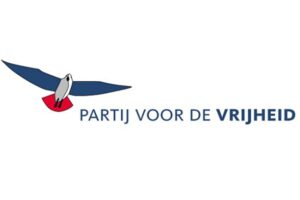PVV Blog 4 ~ The Dutch Parliament, Allegedly Created By The Threat Of Islam
 02-12-2024 ~ At the time of writing this episode of the series, the formation of a new Dutch government is in a sad state.
02-12-2024 ~ At the time of writing this episode of the series, the formation of a new Dutch government is in a sad state.
Sad for the Party for Freedom, because with NSC (New Social Contract party) leader Pieter Omtzigt leaving the negotiating table, the Party for Freedom is still empty-handed. Obviously, not all is lost for Geert Wilders’ party, but a right-wing majority cabinet with the liberal party VVD, the farmers’ party BBB and NSC is not possible.
This development is particularly unfortunate because, according to the brand-new Party for Freedom parliamentary chairman Martin Bosma, the Dutch parliament was established at the time in response to the threat of Islam. This episode of the series explains in more detail how that line of reasoning goes.
The Dutch Parliament not a fake parliament after all
During his fight and victory for the chairmanship of the House of Representatives after the November 2023 elections, Party for Freedom parliamentarian Martin Bosma said, when asked, that the Dutch parliament is not a fake parliament, a claim that contradicts what party leader Wilders stated at the time (in 2015). I understood well why Martin Bosma made this statement, contradicting his leader in a certain sense, and that is because, in his view, the history of the Dutch parliament has everything to do with Islam. In his book The False Elite of the Counterfeiters (in Dutch), which was published in 2010, he writes: ‘The States General (= formal name of the Dutch parliament) was founded to combat Islam’. In the Epilogue of his book he states that our National Assembly was created because ‘our founder, Philip the Good, in response to the fall of Constantinople in 1453 (where the Islamic Turks managed to conquer this last stronghold of the Christian Byzantine Empire ) swears the Oath by the Pheasant, the solemn agreement to put an end to Islam and liberate the city from the yoke of Islam’. According to Bosma, Philip called together the most important citizens of his states and at the first meeting of the States General in Bruges in 1464 the defensive war against Islam was discussed. And with the arrival of the Party for Freedom in the Dutch parliament in 2005, according to Bosma, ‘the fight against Islam is after centuries back at the heart of the States General’.
As far as Philip the Good is concerned, historian Han van der Horst writes in his book The Netherlands. The national history from prehistory to the present (in Dutch) that he indeed openly dreamed about a crusade against the Turks who were advancing in the Balkans. But first and foremost he was a monarch who, navigating between the great powers France, England and the German monarchs, strove to expand his Burgundian empire with countries such as Holland and Zeeland, to bring peace, to provide them with a central government and to bring prosperity. Something he has, according to Van der Horst, succeeded quite well in.
Moreover, the great powers England and France in particular were still busy with each other in the aftermath of the 100 Years War and had little interest in going on a crusade again. Van der Horst concludes that Philip’s crusade plans can hardly be taken seriously. They were more of a dream than a hard political goal.
The DNA of parliament: the fight against Islam
There will be few people who know and share the ‘Islamic view’ of the Dutch parliament. But the Party for Freedom does see the parliament as such. And we will continue to notice this in the coming years. The Party for Freedom, whether it is in the opposition or it having government power, will always view all debates and legislation based on its belief that parliament was established at the time because of the need to fight Islam. After all, that is the core business of the parliament.
And given the party’s vision on parliament, as expressed by Chairman Bosma, we will see that vision of Islam directly and perhaps especially indirectly back in any eventual government policy in the coming years. Party leader Wilders confirmed this in the election campaign when he said: ‘Islam will never leave our DNA.’ (in Dutch – Paywall) He added that in the coming period of government the priority ‘lies on other matters’, but DNA determines a person’s essence and that is why the ‘old parliamentary Islam agenda’ will assert itself in the future despite claims otherwise.
The history of Philip the Good teaches us that nothing came of his fight against the Muslim Turks; but at that time they were in the distant Balkans and now (the same Muslim) Turks and other Muslims live in our own country. Moreover, the Party for Freedom can now count on like-minded parties, especially in Germany, the Alternative für Deutschland, and France, the Rassemblement National. The new crusade against Islam could well be more successful than that of Philip the Good. I am holding my breath.